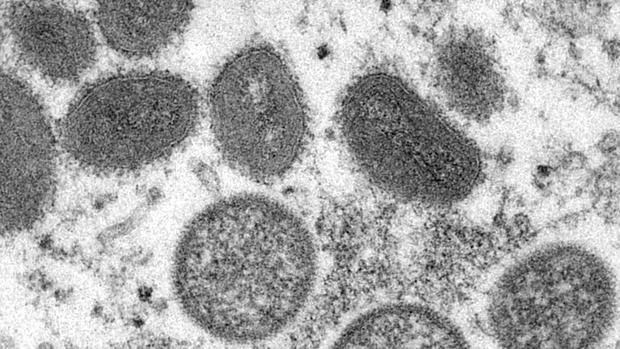How Does Monkeypox Compare To COVID-19?
Originally published May 23
MINNEAPOLIS (WCCO) -- Infectious disease experts around the world have their eye on a virus that's spread to several countries.
There is now one confirmed case of monkeypox in the United States, and at least four other suspected cases.
So how does monkeypox compare to COVID-19? Good Question. Jeff Wagner talked with a doctor about how worried we should be.
More than two years into a worldwide pandemic from COVID-19, a new-yet-familiar virus has emerged once again. Monkeypox originated in Africa and is rarely seen outside that continent. However, there are now 90 cases in 12 countries outside of Africa. One case is confirmed in Massachusetts. There are also probable cases in Florida and New York.
"If you've ever had chicken pox, it's the same sort of genus as the chicken pox virus," said Dr. Nicholas Lehnertz, medical specialist with the Minnesota Department of Health.
What symptoms does monkeypox create?
"It starts off sort of with a fever and a headache, and you get fatigued," said Dr. Lehnertz.
It then creates a rash that turns into raised blisters and scabs. The illness lasts about two to four weeks.
How does monkeypox spread?
"Monkeypox is generally spread through sort of direct contact with the virus through ... like bodily fluids or direct skin-to-skin contact through the pox lesions themselves," he said.
Dr. Lehnertz said monkeypox can also spread through respiratory droplets, but exposure would need to happen for a long period of time and in very close proximity.
How transmissible is it compared to COVID-19?
"It's far less transmissible. I want to emphasize that," he said.
One big difference is people will know they have monkeypox due to the symptoms, meaning they'll likely isolate and see a doctor once they know they're sick. COVID-19 was much more deceptive.
"One of the hardest things about [COVID-19] is that there was a lot of asymptomatic or presymptomatic transmission where you were infectious to other people and you didn't even know it," said Dr. Lehnertz.
The modern world is also more prepared for a monkeypox outbreak. The Centers for Disease Control and Prevention states the disease was discovered in 1958 in colonies of monkeys. The first human case came 1970 in the Democratic Republic of Congo. Since then, vaccines and treatments have been developed, along with further research on how to best stop the virus' spread. It's an advantage medical experts have over COVID-19.
"[COVID-19], it was brand new. We didn't know hardly anything about it, and it kept surprising us at every turn," he said.
There are no cases of monkeypox in Minnesota. However, Dr. Lehnertz said they are taking the spread of the virus seriously and continue to look out for it.
There was a monkeypox outbreak in the U.S. in 2003 in which 47 people were infected. None of them died.
Dr. Lehnertz said monkeypox has a fatality rate of 1%-11%, but that the rate is highly influenced by variables such as access to healthcare, comorbidities, nutrition and more.




